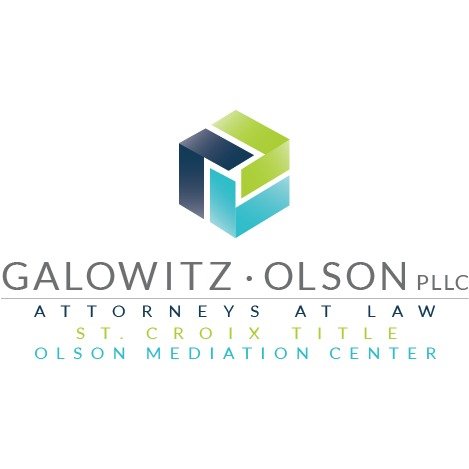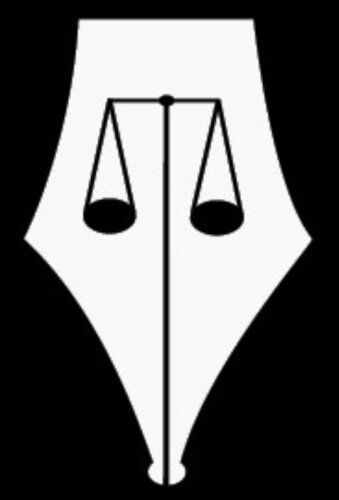Best Landlord & Tenant Lawyers in Minnesota
Share your needs with us, get contacted by law firms.
Free. Takes 2 min.
Free Guide to Hiring a Real Estate Lawyer
Or refine your search by selecting a city:
List of the best lawyers in Minnesota, United States
United States Landlord & Tenant Legal Questions answered by Lawyers
Browse our 2 legal questions about Landlord & Tenant in United States and read the lawyer answers, or ask your own questions for free.
- What is owner of condo units obligation as far as damage to the condo below their unit.
- The unit above my condo is managed by a Property Management company, and it was rented. During the time it was rented, there were water leaks that damaged my ceilings, and the Management Company. refuses to fix the ceiling so that it matches the rest of the ceiling. Even though... Read more →
-
Lawyer answer by Horus Legal Sulotion
Thank you for sharing the details of your situation. Based on the circumstances you described, you may have grounds to escalate the matter legally. You can file a case to request the appointment of a government engineer from Dubai Municipality...
Read full answer - How to protect property from squatters law
- Deed in my mom's name. She died 18 years ago. Son is named as administrator but not as owner. We live in USA so let Non relative live there for 45-50 year but had no formal contract. Let him live there free as long as he paid utilities and taxes.... Read more →
-
Lawyer answer by M BILAL ADVOCATES, CORPORATE & TAX CONSULTANTS
After completing probate to establish yourself as the legal heir, you can transfer the property title to your name and then grant them permission to reside there through a formal agreement. It is worthy to note that you can do...
Read full answer
About Landlord & Tenant Law in Minnesota, United States
Landlord and tenant law in Minnesota governs the legal relationship between property owners who rent residential real estate and the individuals who occupy that property. These laws are designed to outline the rights and responsibilities of both landlords and tenants. They help ensure that tenants have a safe and habitable place to live while protecting the property interests of landlords. Minnesota’s landlord-tenant laws cover everything from how leases are established, the handling of security deposits, and the grounds for eviction, to repair obligations and the return of deposits. Both parties must understand their rights and duties under state and sometimes local laws to avoid disputes and protect their interests.
Why You May Need a Lawyer
While many landlord and tenant matters can be resolved amicably, there are several situations where seeking legal advice or representation is wise, including:
- Eviction proceedings or Unlawful Detainer actions
- Disputes over security deposit returns
- Allegations of lease violations
- Claims of uninhabitable living conditions or failure to repair
- Questions regarding lease agreements or renewals
- Cases involving discrimination or alleged retaliation
- Problems with rent increases or termination notices
- Issues with subletting or transferring tenancy
- Landlords seeking to collect unpaid rent or damages
- Tenants facing lockouts or illegal entry by landlords
A lawyer can clarify your rights, help communicate with the other party, represent you in court, and potentially avoid costly mistakes or negative outcomes.
Local Laws Overview
Minnesota’s landlord and tenant laws are found in Minnesota Statutes Chapters 504B and 504. These rules set specific guidelines for both residential landlords and tenants, covering important topics such as:
- Leases: Leases can be written or oral. Written leases are required for rental periods over 12 months.
- Security Deposits: Landlords can request a security deposit without a legal limit but must return it within 21 days of lease termination, minus any lawful deductions. Landlords must also provide a written explanation for any deductions made.
- Tenant Privacy: Landlords must give 'reasonable notice' (typically 24 hours) before entering a rental unit, except in emergencies.
- Repairs and Maintenance: Landlords are legally obligated to keep rental units fit to live in, making necessary repairs in a reasonable time after notification.
- Evictions: Landlords can evict tenants for failing to pay rent, violating lease terms, or for other legal reasons, but must follow specific court procedures and cannot use self-help methods like changing locks.
- Termination of Tenancy: For month-to-month leases, either party must typically give written notice at least one full rental period in advance.
- Retaliation and Discrimination: Landlords cannot retaliate against tenants for requesting repairs or reporting code violations, nor can they discriminate based on protected classes under state or federal law.
- Local Ordinances: Some cities in Minnesota may have additional rules, such as required rental licenses or special notice requirements.
It is important to check both state law and local city ordinances for complete compliance.
Frequently Asked Questions
Is a written lease required in Minnesota?
No, state law allows leases to be oral or written, but a written lease is required if the rental term is longer than 12 months.
How much can a landlord charge for a security deposit?
Minnesota law does not set a maximum amount, but the deposit must be reasonable and is typically equal to one month's rent.
When does a landlord have to return the security deposit?
Landlords must return the security deposit, minus any allowable deductions, within 21 days after the tenant vacates the property.
Can a tenant withhold rent for repairs?
Yes, if the landlord fails to make necessary repairs after being notified, tenants may seek remedies, including rent escrow actions, by depositing rent with the court instead of the landlord.
How can a landlord evict a tenant in Minnesota?
A landlord must file an eviction action (Unlawful Detainer) in court and cannot evict tenants without a court order, except under very limited circumstances.
How much notice is required to terminate a month-to-month lease?
Either party must give at least one full rental period's written notice before ending a periodic (month-to-month) lease.
Are landlords allowed to raise the rent at any time?
Landlords may raise the rent by giving proper written notice in accordance with the lease terms, generally at least one rental period before the increase for periodic tenancies.
What should I do if my landlord enters my apartment without notice?
Non-emergency entry without reasonable notice is typically prohibited. Tenants may address this in writing or seek help from local authorities or legal counsel.
Can a landlord refuse to rent to someone with children or due to race, religion, etc.?
No, it is illegal for landlords to discriminate based on race, color, national origin, religion, sex, disability, or familial status. Minnesota law adds protections for additional classes such as sexual orientation.
What if a tenant leaves belongings after moving out?
Landlords must follow specific procedures for disposing of abandoned property, including providing notice to the tenant and waiting a set period before disposal.
Additional Resources
- Minnesota Attorney General's Office - Landlord and Tenant Rights and Responsibilities Guide
- Minnesota Judicial Branch - Housing Court Information
- Legal Aid Societies and Volunteer Lawyers Network in Minnesota
- HOME Line - A tenant advocacy organization offering a tenant hotline
- Local city and county housing departments
Next Steps
If you need legal assistance with a landlord-tenant matter in Minnesota, start by gathering all relevant documents, such as your lease, communications with your landlord or tenant, and any notices received or given. Then, review the Minnesota Attorney General’s resources for a general understanding of your rights. If your situation involves potential eviction, unreturned deposits, discrimination, or other serious disputes, consider contacting a legal aid organization, tenant advocacy group, or a private attorney who specializes in landlord-tenant law. Acting quickly can help preserve your rights and increase the likelihood of a favorable outcome.
Lawzana helps you find the best lawyers and law firms in Minnesota through a curated and pre-screened list of qualified legal professionals. Our platform offers rankings and detailed profiles of attorneys and law firms, allowing you to compare based on practice areas, including Landlord & Tenant, experience, and client feedback.
Each profile includes a description of the firm's areas of practice, client reviews, team members and partners, year of establishment, spoken languages, office locations, contact information, social media presence, and any published articles or resources. Most firms on our platform speak English and are experienced in both local and international legal matters.
Get a quote from top-rated law firms in Minnesota, United States — quickly, securely, and without unnecessary hassle.
Disclaimer:
The information provided on this page is for general informational purposes only and does not constitute legal advice. While we strive to ensure the accuracy and relevance of the content, legal information may change over time, and interpretations of the law can vary. You should always consult with a qualified legal professional for advice specific to your situation.
We disclaim all liability for actions taken or not taken based on the content of this page. If you believe any information is incorrect or outdated, please contact us, and we will review and update it where appropriate.
Browse landlord & tenant law firms by city in Minnesota
Refine your search by selecting a city.









